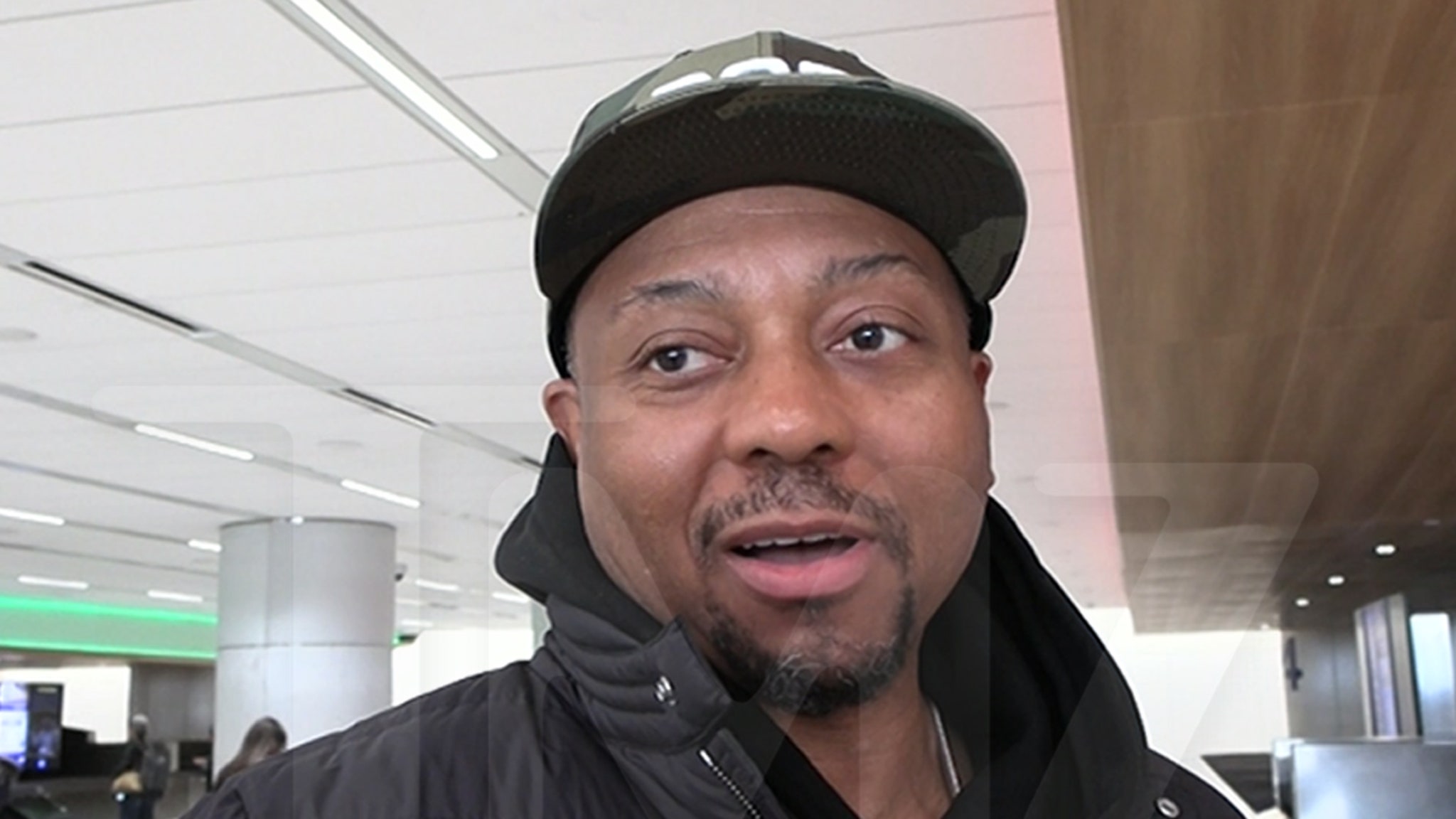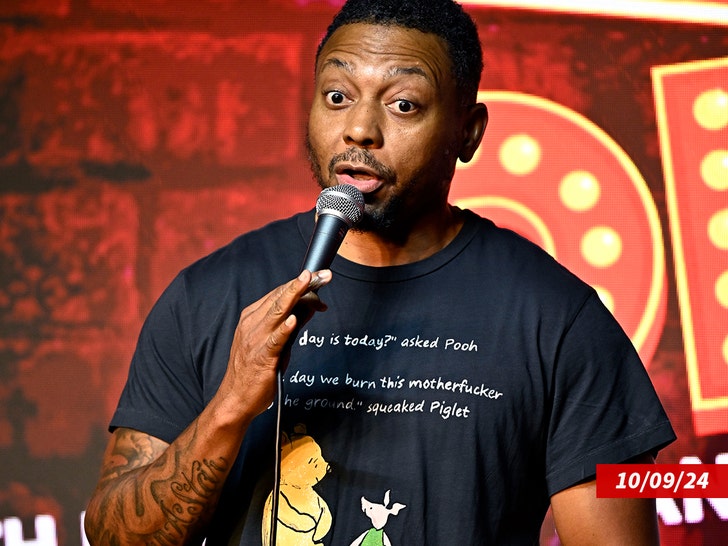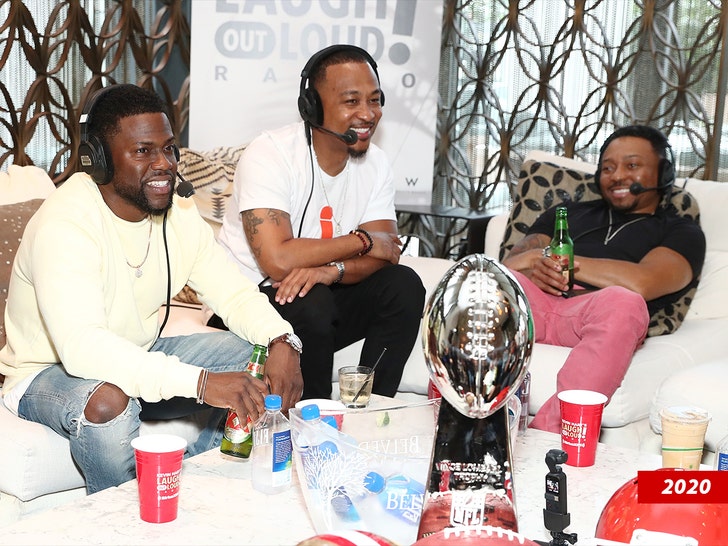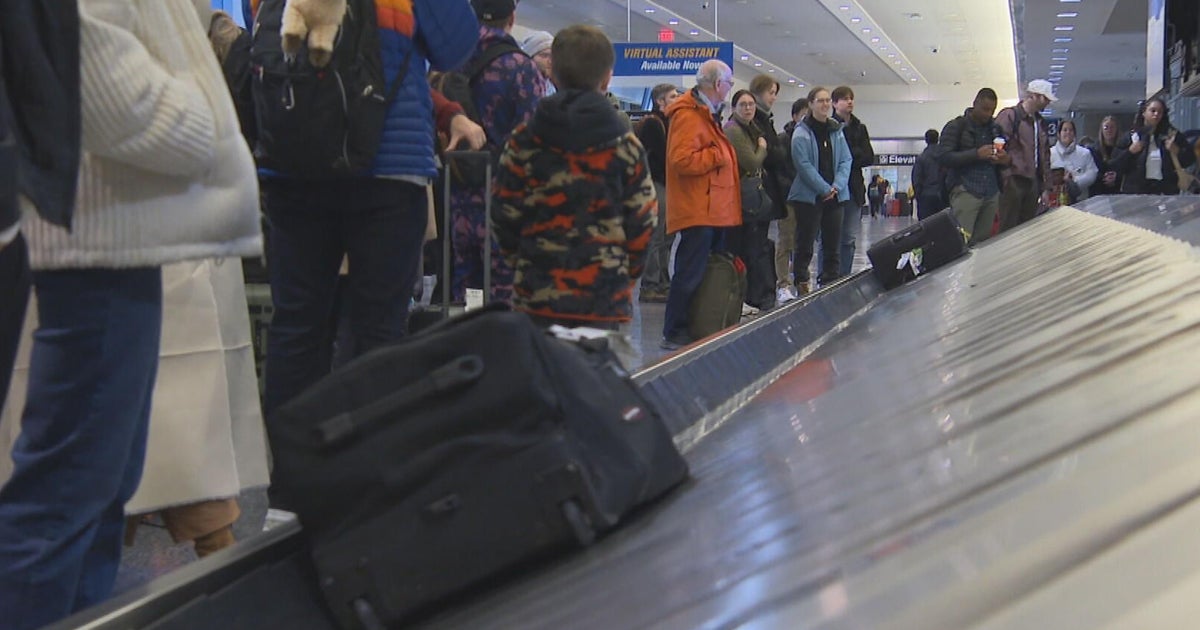Lifestyle
Sunday Puzzle: Can you conquer this Christmas carol puzzle?

Sunday Puzzle
NPR
hide caption
toggle caption
NPR
On-air challenge: Every answer today involves a Christmas carol or a popular Christmas song.
- Rearrange the letters of TINSEL to spell a word. Then rearrange the letters of THING to spell a word. The two words together are the title of a Christmas carol. What is it?
- Take the phrase “He Threw Rings.” Change one letter in each word to get the first three words of a popular Christmas carol.
- The leading newspaper in Nebraska is the Omaha World-Herald. What Christmas carol has “World” in its title? What Christmas carol has “Herald” in its title?
- The refrain of what popular Christmas song consists of only two-letter words?
- Name two colors that come before “Christmas” in Billboard top 40 song titles.
Last week’s challenge: Last week’s challenge came from listener Joseph Young. Change one letter of a place on earth to get a familiar phrase much heard around this time of year. What is it? The answer consists of three words (5,2,5).
Challenge answer: Change one letter of “place on earth” to get “peace on earth!”
Winner: Heather Reed of Eureka Springs, Ark.
This week’s challenge: This week’s challenge comes from Dan Ezekiel, of Ann Arbor, Mich. Think of a two-word brand name for a food item that is marketed as upscale. Remove the last two letters of the first word and the first letter of the second word. Read the result from left to right and you’ll get a one-word brand name associated with the budget-conscious. What is it?
Submit Your Answer
If you know the answer to the challenge, submit it here by Thursday, December 26th, 2024 at 3 p.m. ET. Listeners whose answers are selected win a chance to play the on-air puzzle. Important: include a phone number where we can reach you.

Lifestyle
Commentary: Do we believe in elves? Of course! Otherwise we'd miss out on the magic

We all buy into a suspension of disbelief in certain areas of our lives. We play the lottery (someone’s gonna win), channel what our dogs and cats are thinking (I know this is not just me) and expect our plants to thrive even when we don’t water them (maybe that one’s just me). We are capable of being extraordinarily optimistic.
Of course, if ever there were a season for magical thinking, it’s Christmas. I have a friend who clearly cast a spell on her two cats and got them to pose — glumly but nonetheless — in festive knit hats for a Christmas photo. We believe in Santa Claus, reindeer that fly, and elves on shelves that descend from the North Pole and embed themselves in our homes.
OK, I’m a little late to the party that embraces these elfin figures inspired by a 2005 book: 10 inches or so, of diverse skin colors and genders, all uniformly dressed in sleek red unitards, accessorized with a white collar and red-and-white cone-shaped hats.
They swing from makeshift trapezes and zipline across Christmas trees. They tuck themselves into shoes, sandwiches and other kooky spots. More than 22 million have made their way into homes around the world, and they are quite cosmopolitan. They did a Vogue fashion shoot dressed by Thom Browne and other designers.
They don’t bring gifts. Technically they are Scout Elves, and theoretically their job is to watch over children and report back on naughty or nice behavior. But some parents, wisely, can’t brook a surveillance state in their home and choose to not inform their kids of this bit of the lore. The elves may live to delight children, but (spoiler alert for any young children who read the Los Angeles Times — and thank you for reading!) it is the job of parents to come up with activities for the elves.
The daily surprise is their real purpose: One morning a girl might awaken to see the elf nestled next to her bed; another day a boy might find his household’s elf ensconced in the kitchen in the midst of making pancakes. A few days ago, my friend Tony reported that his daughters awoke to find their elf had turned on the mini Christmas lights and switched hats with a snowman ornament. (Clever dad.)
For all the work that parents do, couldn’t the elves do more for parents? Why can’t they cook dinner or make the beds or drive you to work? If we can have driverless cars, surely we can have elves driving cars. That would be an elf to take off the shelf every single day. But they tend to be more puckish than productive, and that’s part of their charm. It’s a season for fun.
The magic of these elves shouldn’t strain our imaginations too much. The tooth fairy deposits money under a pillow and no one ever sees her — or him or them. We believe in Santa and we never see him, just the half-eaten cookies and gifts he leaves behind. We’ve seen a million pictures of Santa with his puffy cheeks and snowy white beard. Yet no child really cares what he looks like.
I once wrote about the proliferation of Santas at Christmastime — in stores, on the streets. At an event in Culver City, a Black Santa held court listening to children recite their Christmas lists. The adults stood by, pleased at the ecumenical nature of the Santa event and the fact that none of the kids commented on this Santa not matching the pictures in storybooks. Why would they? Who cared as long as he was getting their Christmas lists down?
For years at a Catholic church in the South Bay, the hugely popular early evening Christmas Eve Mass featuring a children’s choir would come to a close after Holy Communion with the priest standing before the congregation. He would start to say a few words only to be interrupted by the sound of jingling bells. The lights would dim, and up the main aisle would come Santa Claus carrying a big red bag. The children would laugh and applaud, parents would take pictures, and Santa would walk over to a Nativity scene on one side of the church, kneel for a moment, and then wave and exit through a side door into the dark evening. There is no Santa Claus in the “greatest story ever told,” but there was one that night in the church. And everyone embraced him.
There can be a very human temptation to pick apart magical beliefs, a tendency that sets in at some point in childhood — or perhaps that marks the end of childhood. But at this time of year, I see inspiration for a different approach. Instead of letting our dreary realism call into question the Santas and the elves, we could hold on to our holiday imaginings and lean into that other very human impulse: the will to believe, against all odds, in better times and a better world year-round.
Lifestyle
Where did Barry Jenkins feel safe as a kid? Atop a tree

Barry Jenkins at the world premiere of Disney’s “Mufasa: The Lion King” at the Dolby theater in Hollywood, California, December 9, 2024.
LISA O’CONNOR/AFP via Getty Images/AFP
hide caption
toggle caption
LISA O’CONNOR/AFP via Getty Images/AFP
A note from Wild Card host Rachel Martin: It is virtually impossible to watch a Barry Jenkins film and not be emotionally changed. You can’t watch the scene from the Oscar-winning film Moonlight, where Juan teaches Little to swim without seeing the full humanity of both those characters — the fragility and strength and desperation and love all at the same time.
Barry Jenkins never set out to make movies for the masses. He’s a champion of independent film who tells stories about Black life in America — from a film about a one-night stand in San Francisco in the early 2000s to the limited series based on the Colson Whitehead book, The Underground Railroad.
But that’s the thing about art and movies in particular. No matter how specific the experiences reflected on screen, if the story is told as true as it can be — as authentically as possible — the work transcends boundaries. It will mean different things to different people, but it will mean something. And Barry Jenkins has made films that matter in the most profound ways.
So when I tell you that Barry Jenkins is making the newest Disney movie, Mufasa: The Lion King, maybe you need to take a beat because this is the indie filmmaker taking a big swing in the completely opposite direction. But then you remember that Barry Jenkins wants his films to make an emotional imprint on us. And if a little “Hakuna Matata” doesn’t make you feel joy, then I don’t know what will.
The official trailer of “Mufasa: The Lion King.”
YouTube
This Wild Card interview has been edited for length and clarity. Host Rachel Martin asks guests randomly-selected questions from a deck of cards. Tap play above to listen to the full podcast, or read an excerpt below.
Question 1: Where would you go to feel safe as a kid?
Barry Jenkins: I grew up very poor — in the world that you see dramatized in Moonlight. And I lived in this housing project — I think it was built as barracks, probably for soldiers — and then became public housing.
Martin: This is in Miami, we should say.
Jenkins: This is in Miami, exactly. And in the middle of this complex, there was an old, like, laundromat, like a washhouse. And it was this one-story, maybe like 20-by-10-foot thing, the structure. But it had this flat roof and there was this massive tree above it. And I remember as a child, if things were too heavy or there was too much going on, I would go and I would climb up in the window to get onto the roof and then I would jump onto the tree and I would squirrel up into the very top of this tree — like so high that if someone was walking by, they would never know someone was up there. And I would just go up into this tree and I would just sort of just listen to the sounds of the day. I would just clear my head. And I think I would just stay up there until I felt like I was ready to sort of reenter the world or reenter my life. I haven’t thought of that in a very, very long time because the idea of me climbing trees now is crazy. But yeah, that’s what I would do.
The official movie trailer for “Moonlight.”
YouTube
And it’s interesting, later in life I would sometimes go on these long walks as a teenager and I would find these empty houses that had fruit trees in the backyards, you know, it’s Florida, it’s Miami — grapefruit trees, avocado trees. I guess I climb trees a lot. I would climb trees to go feel safe.
Martin: And to get perspective probably. I mean, there’s something about getting high above the din of life and the hard things.
Jenkins: Yeah, it’s weird. There’s a version of it that maybe is: you’re trying to avoid all these different things, but I think solitude can be very fortifying as well. And to sort of recenter yourself before you reenter the rigors, the demands of everyday life, especially that life, because it was a lot for a child to process.
Question 2: What is something you still feel you need to prove to the people you meet?
Jenkins: Because of where I came from and what I do, that there’s just always this version of me that feels like I’m not enough, you know? That I constantly have to prove, to reaffirm my ability, my value, my merits. And so any time I walk onto a set, I walk into a conversation like this — and it sucks because it’s the antithesis to us actually communicating and connecting — is me bringing this voice in the back of my head that feels like, “I am just simply not enough. I’m not good enough.”
The flip side is, you know, it keeps me very driven. I am trying to put my full self, I am trying to just be unimpeachably affirmative, of value, of merit — just of merit. And I think it’s something that will always be with me, unfortunately, because I don’t think it’s something that adds value.

Martin: You haven’t experienced it abating over time?
Jenkins: No, no, no, I have not. I made this film If Beale Street Could Talk, which is an adaptation of James Baldwin. And there’s this great quote that we put into the movie. It’s taken directly from the book: “The children have been told that they weren’t worth s*** and everything around them proved it.”
It’s, on one hand, a very lovely, beautiful book, but also a very angry, justifiably angry, book. And something of that line just stays in the back of my head. And for some reason, I feel like I’ll always be working in the opposite direction to disprove it, you know? That I’m not worth s***. And so that’s it. So I’m going to give you the honest answers, Rachel Martin.
Question 3: Do you think there’s order in the universe or is it all chaos?
Jenkins: I think it’s all chaos. I really do. I have to believe that.
Martin: Woah. People usually give the complete opposite answer — that there is order because they have to believe that — because the alternative is so unsettling.
Jenkins: The alternative is unsettling. But there’s also something quite beautiful about it as well. I do believe that the universe is chaos and our role in it, which is I think the beauty and the agony of life, is to make sense of it and to try to create order, but to do it ethically, to do it in a way that’s spiritually balanced.
I truly and fully believe that, because if the universe was completely the situation of order, I think the history of me, you know, I’m the descendant of African slaves — what order gave birth to that path? That certainly came out of complete chaos and horror. But I think we can take that chaos and create something quite profound. I really do.

Screenwriter Tarell Alvin McCraney (left) and writer/director Barry Jenkins (right) accept the Best Adapted Screenplay award for “Moonlight” onstage during the 89th Annual Academy Awards at Hollywood & Highland Center on February 26, 2017 in Hollywood, California.
Christopher Polk/Getty Images/Getty Images North America
hide caption
toggle caption
Christopher Polk/Getty Images/Getty Images North America
I mean, Rachel Martin, it is December 2024. You’re going to tell me the last five years on this planet, you know, have been orderly? They have been beyond chaotic. I mean, beyond. And when we go out and create work — when you do these interviews, when I create these films — I do think we’re all trying to have conversations, dialogue, to make sense of all this chaos, to show that we’re all navigating it in our own ways and we are just doing the best we can.
Martin: Indeed. And I think when people give the opposite answer — that there’s order — it’s their projection of order that makes the chaos manageable. You know?

Jenkins: It is true. I have to be honest and say most of the people who come onto the show — myself included — we’re speaking from places of extreme privilege. Not all of us, but quite a few of us. And I just can’t ever really sit in that place.
Lifestyle
Comedian Na'im Lynn Says It's 'Inappropriate' to Give Friends Gifts, Cards

TMZ.com
Friends of Na’im Lynn shouldn’t expect any holiday cheer from the comedian … he doesn’t believe in gifting pals with presents or cards — except for one A-list exception.
We caught up with the funny man at LAX, where the stand-up star explained his reasoning behind skipping gift exchanges with friends during the holiday season. As he put it … he “never” buys holiday presents for his friends, declaring it’s weird to give pals gifts for any reason.

He added … “If you do buy a gift, you definitely can’t give a card. First of all, there’s no cards made for best friends. You’ve never seen that in the card section. You see mother, father, child, grandmother, secretary, love — never for homies.”
Na’im made it clear that he doesn’t want Hallmark to try and make it a thing, either … he called the idea of a friend card “inappropriate.”
Na’im advised his male peers to show their love in other ways … whether that be picking up the tab here and there or through quality time.

However, NL did say there was one instance where a friend gift wouldn’t be “awkward” … and that’s when the present isn’t expected or asked for, and maybe you ask to be paid back, or not.
Na’im clarified he doesn’t always follow his own rule, however … as he confessed to getting best friend Kevin Hart a gift in the past.
Per Na’im, it was a “different” scenario since he gave KH a present when they wrapped up a tour together. He couldn’t not show his appreciation after all!!!
Looks like Kevin is the one exception to Na’im’s golden rule … and we’re sure the movie star’s OK with that.
-

 Politics1 week ago
Politics1 week agoCanadian premier threatens to cut off energy imports to US if Trump imposes tariff on country
-
/cdn.vox-cdn.com/uploads/chorus_asset/file/25789444/1258459915.jpg)
/cdn.vox-cdn.com/uploads/chorus_asset/file/25789444/1258459915.jpg) Technology1 week ago
Technology1 week agoOpenAI cofounder Ilya Sutskever says the way AI is built is about to change
-

 Politics1 week ago
Politics1 week agoU.S. Supreme Court will decide if oil industry may sue to block California's zero-emissions goal
-
/cdn.vox-cdn.com/uploads/chorus_asset/file/25546252/STK169_Mark_Zuckerburg_CVIRGINIA_D.jpg)
/cdn.vox-cdn.com/uploads/chorus_asset/file/25546252/STK169_Mark_Zuckerburg_CVIRGINIA_D.jpg) Technology1 week ago
Technology1 week agoMeta asks the US government to block OpenAI’s switch to a for-profit
-

 Business1 week ago
Business1 week agoFreddie Freeman's World Series walk-off grand slam baseball sells at auction for $1.56 million
-
/cdn.vox-cdn.com/uploads/chorus_asset/file/23951353/STK043_VRG_Illo_N_Barclay_3_Meta.jpg)
/cdn.vox-cdn.com/uploads/chorus_asset/file/23951353/STK043_VRG_Illo_N_Barclay_3_Meta.jpg) Technology1 week ago
Technology1 week agoMeta’s Instagram boss: who posted something matters more in the AI age
-
News1 week ago
East’s wintry mix could make travel dicey. And yes, that was a tornado in Calif.
-
/cdn.vox-cdn.com/uploads/chorus_asset/file/24924653/236780_Google_AntiTrust_Trial_Custom_Art_CVirginia__0003_1.png)
/cdn.vox-cdn.com/uploads/chorus_asset/file/24924653/236780_Google_AntiTrust_Trial_Custom_Art_CVirginia__0003_1.png) Technology2 days ago
Technology2 days agoGoogle’s counteroffer to the government trying to break it up is unbundling Android apps














